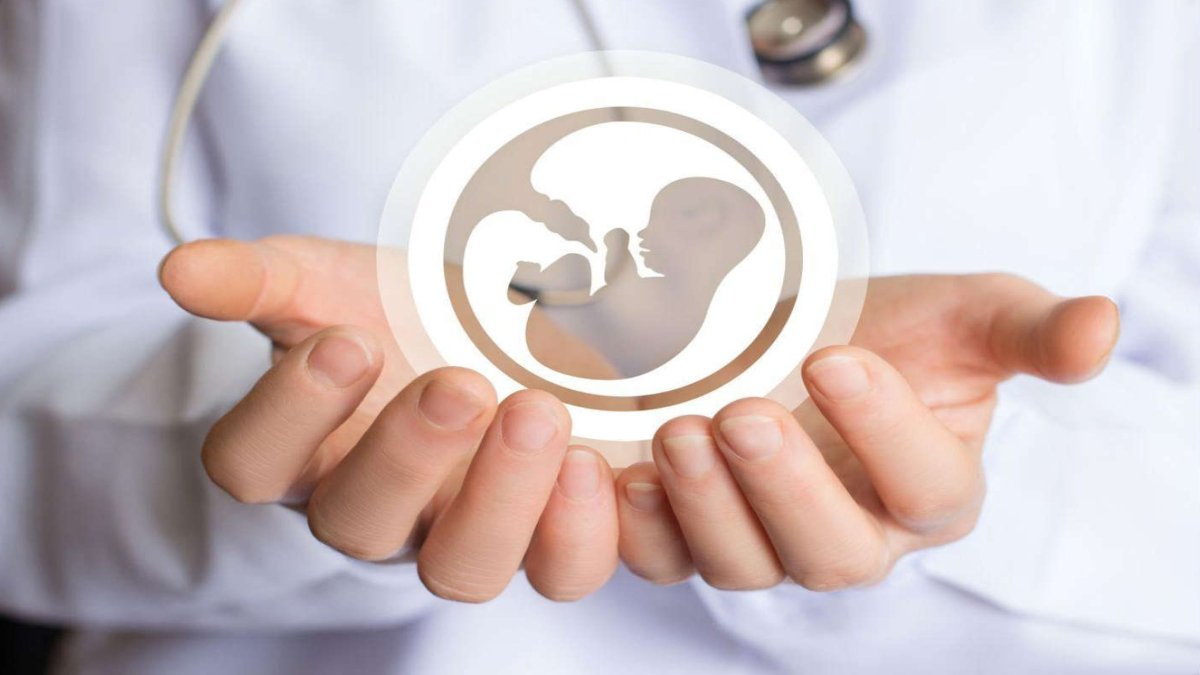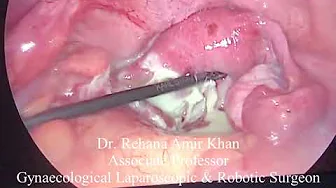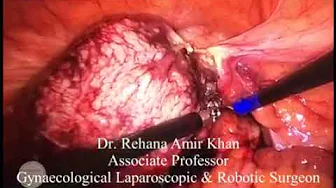High Risk Pregnancy
HIGH RISK PREGNANCY
Are You Suffering from Some Chronic or Deadliest Disease;

Don't Worry; We Have Trained Team to Tackle High-Risk Pregnancy
With Years of Experience In Gynecology, We Are Expert Laparoscopic Gynecologist In Lahore
If you have a high-risk pregnancy, you may have questions. Do you need special prenatal care? Will your newborn be ok?
If you have a high-risk pregnancy, you or your baby may be at increased risk for health problems before, during, and after birth. Often, monitoring or special care is required throughout pregnancy.
HIGH RISK PREGNANCY
Disease That Leads To High-risk Pregnancy
Sometimes it results from a medical condition that existed before the pregnancy. In other cases, medical conditions or diseases that develop during pregnancy, such as:
Other conditions we treat include:
Hypertension in Pregnancy
Hypertension is the blood pressure higher than average in the arteries. High blood pressure during pregnancy can affect the body differently than usual. Mothers with high blood pressure during pregnancy are at increased risk of complications before, during, and after delivery. The mother's health is at stake, and the baby can also be affected by high blood pressure during pregnancy.
High blood pressure during pregnancy can affect the development of the placenta, limiting the baby's supply of nutrients and oxygen. However, this can lead to the premature birth of the baby, low birth weight, placental abruption (abruption), and other complications.
Diabetes in Pregnancy
Poorly controlled diabetes during pregnancy can increase the chance of congenital disabilities and other problems in the baby. It can also cause severe complications in women. Proper medical care before and during pregnancy can help prevent congenital disabilities and other health problems.
Gestational diabetes is diagnosed when blood sugar levels rise during pregnancy. It affects pregnant women who have not been previously diagnosed with diabetes.
Furthermore, there are two types of gestational diabetes.
Gestational diabetes disappears after delivery. But it can affect a newborn's health and increase the risk of developing type 2 diabetes. You need to take care of yourself and your baby to stay healthy.
Jaundice in Pregnancy
Cholestasis is a liver problem during pregnancy that, although relatively rare, can have severe consequences for the health of the mother and fetus. It can occur with pregnancy or both.
Cholestasis of pregnancy is a liver problem. It slows or stops the normal flow of bile in the gallbladder. This can cause itching and yellowing (jaundice) of the skin, eyes, and mucous membranes. Cholestasis sometimes starts early in pregnancy.
The clinical manifestations of liver disease in pregnancy are often nonspecific. They include jaundice, nausea, vomiting, and abdominal pain—all liver diseases during pregnancy increase maternal and fetal morbidity and mortality.
Ovarian Cyst in Pregnancy
We have treated patients with Ovarian Cyst women with a 100% success rate.
For your information, Ovarian cysts during pregnancy are carefully evaluated to identify patients who require surgical intervention and those who can take a "wait and see" approach. Ultrasound and magnetic resonance imaging are safe diagnostic tools to differentiate benign from malignant lesions.
Ovarian cysts are sacs or bags of cells/ tissues filled with fluid, while ovarian tumors are solid masses of cancer cells. Most ovarian cysts go away with your menstrual cycles naturally, while ovarian tumors require treatment.
Above all, the treatment options (surgery) are discussed in detail. Considering tumor diameter, gestational age, and surgical experience, both open and laparoscopic surgery can be performed depending upon duration of pregnancy. If there is a high suspicion of malignancy, a multidisciplinary approach is required, preferably with a referral of the patient to a center with specialized knowledge.
Heart Disease with Pregnancy
Cardiovascular disease is the leading cause of pregnancy complications. Congenital heart disease is the most severe heart disease affecting pregnancies. Cardiac disease in pregnancy refers to issues with your heart that occur while you’re pregnant.
There are two types of cardiovascular diseases.
Furthermore, most women with a heart condition become pregnant and have healthy babies. But cardiovascular disease during pregnancy sometimes leads to severe complications. Heart disease during pregnancy can be dangerous. It is difficult to tell whether a symptom is usual or cause for concern.
If you have heart disease/issue before conceiving, you are at a higher risk of heart-related complications during pregnancy. Your difficulty depends on the specific condition you have and its severity.
Some heart problems can raise your risk of pregnancy complications. If you have any concerns, talk with our doctor about the chances/risks of becoming pregnant.
Fibroids in Pregnancy
Are you suffering from Fibroids? Or Don't know what it is?
Additionally, many women have different sizes of multiple fibroids. It is estimated that 40 to 60 percent of women will develop fibroids by age 35, and up to 80 percent will develop fibroids by age 50. But spotting them during pregnancy isn't always easy. This is because doctors have difficulty distinguishing between fibroids and swollen muscles.
Most women with fibroids can usually get pregnant, but sometimes they can cause problems particularly pain n growth restriction during pregnancy ,increase risk of cesarean ,n difficult cesarean section
HIGH RISK PREGNANCY
Other complex conditions we treat during pregnancy:
Coagulation disorder (Pregnancy and blood clots)
This condition can occur to any woman. During pregnancy, more blood is pumped into your body to meet your developing baby's needs. More blood flowing through the body means extra pressure on the blood vessels, which can cause them to narrow. Along with hormonal changes, you are five times more likely to develop blood clots during pregnancy or after birth than any non-pregnant woman.
Some blood clotting disorders, such as antiphospholipid syndrome (APS), increase the risk of blood clots during pregnancy, which can lead to pregnancy-related problems such as miscarriage or preeclampsia (high blood pressure during pregnancy).
If you have APS or are planning to become pregnant, please consult our Gynecologist. Women with APS can have a successful pregnancy. Our doctors recommend medicines to prevent blood clots and order more tests, such as ultrasounds, to check the newborn's growth.
Intrauterine Fetal Death (IUFD) in Pregnancy
A condition when a fetus dies at or after 20 weeks of gestation or the second trimester. IUFD is not the same as a miscarriage that occurs before 20 weeks of pregnancy.
IUFD can happen to anyone. However, doctors can identify risk factors for stillbirth and ensure that mothers are adequately monitored, diagnosed, and treated for any complications that may increase these risks.
Unfortunately, some stillbirths may be due to a lack of prenatal care by doctors. Medical negligence may be considered if a medical professional fails to assess, diagnose, or treat any risk factor leading to stillbirth.
Some of these problems cannot be avoided entirely. However, our obstetricians can monitor potentially dangerous situations and take precautions to ensure safe delivery.
Start by calling one of our interested and reliable registered nurses who can listen to your story and help answer any questions you may have.
Premature rupture of membranes (PPROM)
It is one of the complications of pregnancy. In this case, the sac (amniotic membrane) that surrounds the baby ruptures (ruptures) before 37 weeks of pregnancy. Once a t bag around baby ruptures, your risk of infection increases. Your baby is also more likely to be born prematurely. In most cases of Pre PROM, the cause is unknown.
Premature rupture of membranes occurs in many preterm births. Babies born prematurely can have many serious problems. These babies are survived in special nurseries. we have saved many babies of weight even between 800g to 1kg with no complication other complications of Pre PROM include:
However, if you experience any leakage from vagina during pregnancy, please call our gynecologist immediately.
Fetal growth restriction
Fetal growth restriction (FGR), formerly known as intrauterine growth restriction (IUGR), is a condition in which the fetus is smaller than it should be because the fetus is not growing at an average rate in the womb.
Mild FGR usually does not cause long-term problems. Most children with this condition regain their height and weight by age 2. But severe FGR can seriously harm the baby before and after birth. The severity of the problem depends on the cause and severity of the growth restriction.
In severe cases, FGR can lead to stillbirth. It could also lead to long-term growth problems.
FGR cannot permanently be blocked. Indeed, a healthy lifestyle will prominently reduce the risk.
Depending on the cause of the FGR, the child may be very young or appear malnourished. They may be thin and pale, with dry, loose skin. The umbilical cord is usually thin and dull rather than thick and shiny. However, not all babies born have FGR. when we treat patient before getting pregnant n find cause for growth restriction carefully, we can treat it n can have healthy baby next time, so if u have such history contact our gynecologist right now
Polyhydramnios
Polyhydramnios is an excessive accumulation of amniotic fluid, the fluid that surrounds the baby in the womb during pregnancy. Amniocentesis occurs in about 1% to 2% of pregnancies.
Most cases of polyhydramnios are mild and result from the gradual accumulation of amniotic fluid in the second half of pregnancy. Severe polyhydramnios can affect your respiration, can lead to premature labor, or many more.
If you are diagnosed with polyhydramnios, our doctors will carefully monitor your pregnancy to help and prevent complications. Treatment depends on the condition of the patient. Mild polyhydramnios may go away on their own. Severe polyhydramnios may require close monitoring.
Our doctor may also suspect hydrocephalus if your uterus is overly enlarged and you are having trouble feeling the baby in some cases of polyhydramnios. Undiagnosed diabetes is most common cause .if u have currently or previously this problem then contact us because after finding reason it is treatable
HIGH RISK PREGNANCY
What do we do for a healthy pregnancy?
Whether you already know you're going to have a high-risk pregnancy or want to do everything possible to prevent a high-risk pregnancy, stick to the basics.
Follow-up sessions:
Consult us any time if you are considering pregnancy. We may recommend that you take a daily prenatal vitamin with folic acid and reach a healthy weight before conception. Your treatment may prepare you for pregnancy if you have a medical condition. However, we may also discuss the risks of having a newborn with a genetic disorder.
Seek regular prenatal care.
Prenatal visits can help monitor your and your baby's health. You may be referred to a specialist in maternal-fetal medicine, genetics, pediatrics, or other fields.
Avoid hazardous materials.
If you smoke, stop smoking. Alcohol and illegal drugs are also prohibited. Take regular medications or supplements that our specialist recommends.
Specific Diagnostic Test
Depending on the situation, we may recommend:
Professional or targeted ultrasound.
This type of fetal ultrasound - an imaging technique that uses high-frequency sound waves to produce images of the baby in the womb -- targets suspicious problems, such as abnormal development.
Perform cell-free DNA (cfDNA) screening before birth.
DNA from both the mother and the fetus is extracted during this process. The mother's blood sample is taken and the fetal DNA are checked to increase the chance of diagnosing chromosomal issues when the baby is in the uterus, accordingly termination of pregnancy is advised in early weeks.
Invasive genetic testing.
We may recommend amniocentesis or chorionic villus sampling (CVS). During amniocentesis, a sample of the fluid (amniotic fluid) that surrounds and protects the baby during pregnancy is removed from the uterus. Usually performed after the 15th week of pregnancy, amniocentesis can identify certain genetic conditions and severe problems with the brain or spinal cord (neural tube defects).
During CVS, a cell sample removes from the placenta. Usually performed between 10 and 12 weeks of pregnancy, CVS can identify certain genetic conditions.
Ultrasound of the length of the cervix.
Also, an ultrasound will measure your cervix size during your prenatal visit to determine if you are at risk for preterm labor.
Lab testing.
Your healthcare provider will test your urine for urinary tract infections and check you for infectious diseases like HIV and syphilis.
Biophysical Profile.
These ultrasounds are used to check the baby's health before birth. It may include only an ultrasound to assess the fetus's health or, depending on the findings of the ultrasound, also monitor the fetal heart rate (not a stress test).
Some prenatal diagnostic tests, such as amniocentesis and chorionic villus sampling, carry a small risk of miscarriage. The decision to have these tests is after complete checkup, then it will be discussed with you and your partner.
Request an appointment
If you experience any unusual symptoms that bother you during your daily activities, make an appointment with us.




